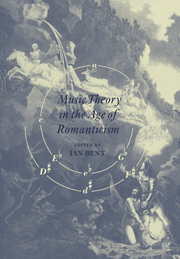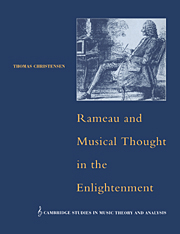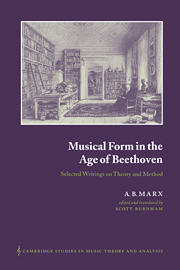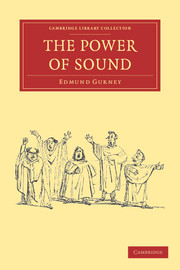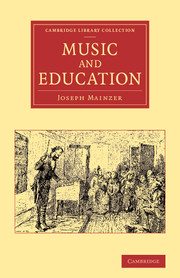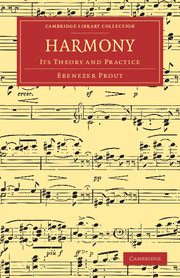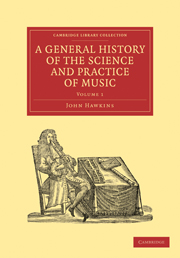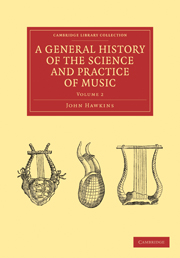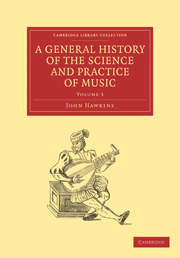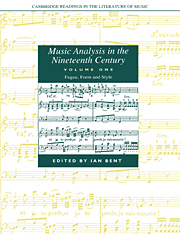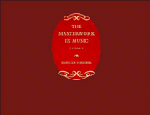Music Theory in the Age of Romanticism
£39.99
- Editor: Ian Bent, Columbia University, New York
- Date Published: September 2005
- availability: Available
- format: Paperback
- isbn: 9780521020084
£
39.99
Paperback
Looking for an inspection copy?
This title is not currently available on inspection
-
Twelve authors probe the mind of the Romantic era in its thinking about music. They provide a searching examination of writings by music theorists, critics, aestheticians, philosophers, and commentators from 1800 to 1875. In doing so, they wield new critical tools as well as old, casting fresh light, for example, on familiar problems of musical form by inspecting eighteenth-century rhetoric and nineteenth-century gendered discourse; exploring Schubertian modulation and Wagnerian motif with the insights of cognitive science; reinterpreting pianistic finger exercise by way of Michel Foucault and Frankenstein and so on. The impact of Hegel and Schelling on music theory occupies an important place, as does Schleiermacher's hermeneutics on analysis and criticism. The brilliant group of young historians of theory, represented here, provides an array of approaches, from detailed music analysis, through close reading of texts, through critical discourse, to philosophical enquiry.
Read more- The history of music theory is a new and burgeoning field
- Discusses the music of Beethoven, Weber, Berlioz, Liszt, Wagner and many other important nineteenth-century figures
- Written by a new and outstanding generation of young scholars
Reviews & endorsements
'The project Bent has undertaken here is a large and admirable one, namely to demonstrate how musicians in the 19th century thought about and described music, and there are few people in this field who are better qualified to do this. Bent surveys the fascinating diversity of approaches to analysis of that century (ranging from the verbal, diagrammatic, tabular and notational to the graphic) and relates these to the equally manifold purposes for which analysis was then pursued …' Brio
See more reviews'These tightly-focused essays complement the considerable achievement of Ian Bent in bringing 19th-century music theory to the attention of musicology.' Julian Rushton, Musical Times
'… anyone working on the aesthetics of music, and indeed the history of aesthetics in general, will find much interesting and illuminating material here.' British Journal of Aesthetics
Customer reviews
Not yet reviewed
Be the first to review
Review was not posted due to profanity
×Product details
- Date Published: September 2005
- format: Paperback
- isbn: 9780521020084
- length: 256 pages
- dimensions: 244 x 170 x 14 mm
- weight: 0.41kg
- contains: 1 table 24 music examples
- availability: Available
Table of Contents
Part I. Cultural and Philosophical Frameworks:
1. The mechanics of sensation and the construction of the Romantic musical experience Leslie David Blasius
2. F. W. J. Schelling's Philosophie der Kunst: an emergent semiology of music Ian Biddle
3. Fétis and emerging tonal consciousness Thomas Christenden
4. Romantic music under siege in 1848 Sanna Pederson
Part II. Hermeneutics, Analysis, Criticism:
5. Second immediacies in the Eroica Brian Hyer
6. Plato – Beethoven: a hermeneutics for nineteenth-century music? Ian Bent
7. Intersubjectivity and analysis: Schumann's essay on the Fantastic Symphony Fred Everett Maus
Part III. Rhetoric, Metaphor, Musical Perception:
8. The concept of développement in the early nineteenth century Peter A. Hoyt
9. A. B. Marx and the gendering of sonata form Scott Burnham
10. ... wie ein rother Faden: on the origins of 'Leitmotif' as critical construct and musical practice Thomas Grey
11. Musical invariance as a cognitive structure: 'multiple meaning' in the early nineteenth century Janna K. Saslaw and James P. Walsh
Index.
Sorry, this resource is locked
Please register or sign in to request access. If you are having problems accessing these resources please email [email protected]
Register Sign in» Proceed
You are now leaving the Cambridge University Press website. Your eBook purchase and download will be completed by our partner www.ebooks.com. Please see the permission section of the www.ebooks.com catalogue page for details of the print & copy limits on our eBooks.
Continue ×Are you sure you want to delete your account?
This cannot be undone.
Thank you for your feedback which will help us improve our service.
If you requested a response, we will make sure to get back to you shortly.
×
